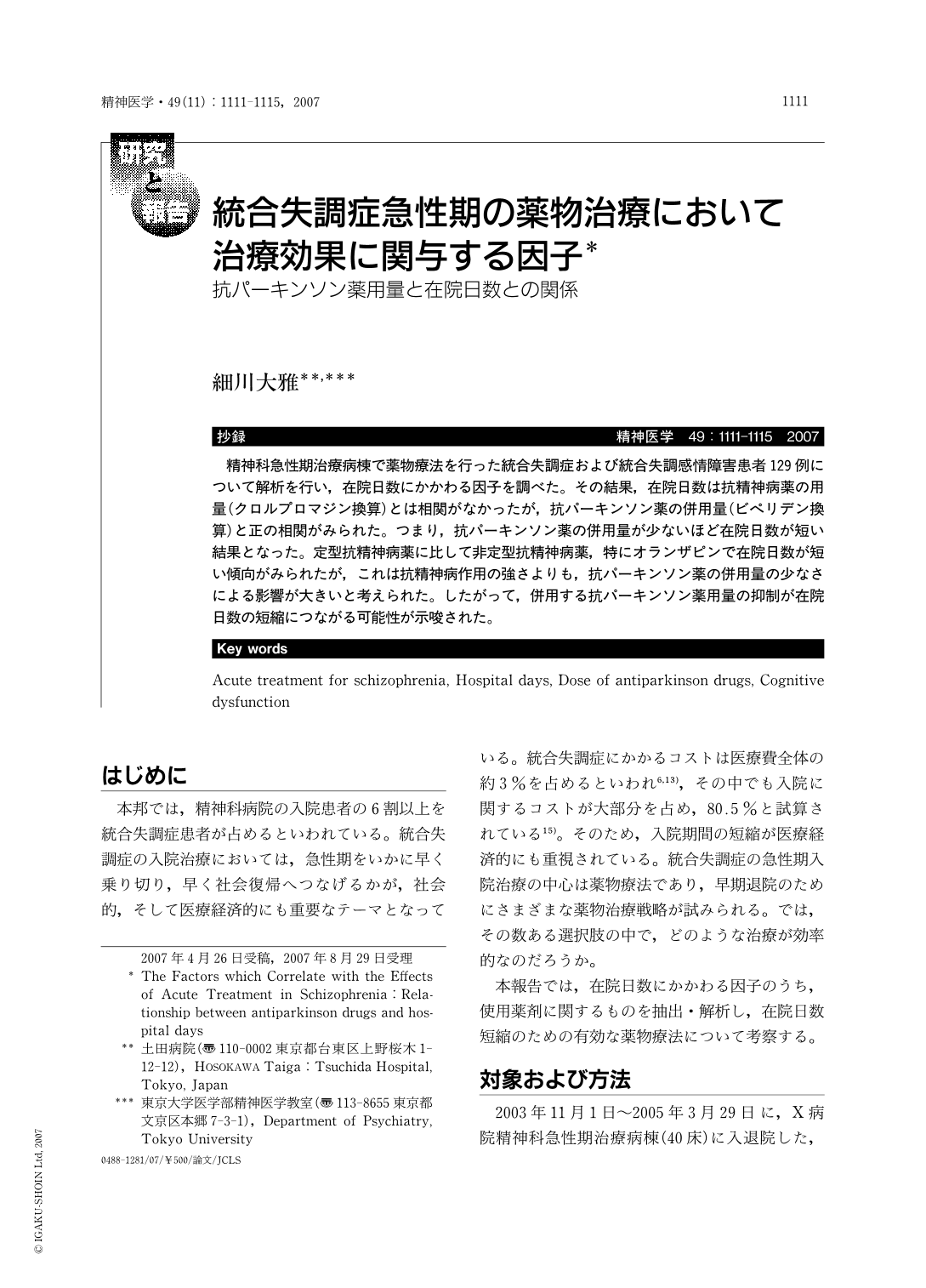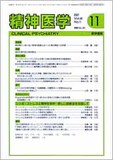Japanese
English
- 有料閲覧
- Abstract 文献概要
- 1ページ目 Look Inside
- 参考文献 Reference
抄録
精神科急性期治療病棟で薬物療法を行った統合失調症および統合失調感情障害患者129例について解析を行い,在院日数にかかわる因子を調べた。その結果,在院日数は抗精神病薬の用量(クロルプロマジン換算)とは相関がなかったが,抗パーキンソン薬の併用量(ビペリデン換算)と正の相関がみられた。つまり,抗パーキンソン薬の併用量が少ないほど在院日数が短い結果となった。定型抗精神病薬に比して非定型抗精神病薬,特にオランザピンで在院日数が短い傾向がみられたが,これは抗精神病作用の強さよりも,抗パーキンソン薬の併用量の少なさによる影響が大きいと考えられた。したがって,併用する抗パーキンソン薬用量の抑制が在院日数の短縮につながる可能性が示唆された。
129 schizophrenia and schizoaffective patients under medical treatment at the acute-care hospital were analyzed to identify factors involved in hospital days. The results were, that hospital days did not correlate with the dose of antipsychotic drugs, but only with the dose of antiparkinson drugs. This means that lower doses of antiparkinson drugs result in shorter hospital days. Compared with typical antipsychotic drugs, atypical antipsychotic drugs, especially Olanzapine, tend to induce shorter hospital days. The reason for this is that, low doses of antiparkinson drugs contribute more than mere antipsychotic effects. Thus, this result suggests that lowering of the dose of antiparkinson drugs induces shortening of hospital days.

Copyright © 2007, Igaku-Shoin Ltd. All rights reserved.


